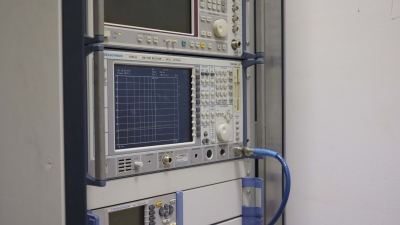
Pregnancy and Radiation Exposure
Radiation exposure is considered one of the factors that are harmful to expectant mothers.[1] It is said to be dangerous for pregnant women and their babies to be exposed to high doses of radiation in small doses over extended periods of time.[2]
Radiation might be particularly damaging to the fetus during the first trimester of pregnancy because many processes that affect the development of the baby takes place during that time.
Processes such as organogenesis, i.e. the formation of internal organs. Damage to the baby’s central nervous system occurs when pregnant women are exposed to high doses of radiation. Both the woman and her partner should avoid increased exposure to the harmful effects of radiation.[3]
Effects of radiation exposure during pregnancy
Despite the fact that the electromagnetic waves are not visible to the naked eye, they are constantly present in our environment and might have an impact on the human body.[4] Pregnant women who frequently overuse a variety of electrical and electronic devices[5] may inadvertently contribute to stunting fetal brain development.[6]
This is because electromagnetic radiation emitted by mobile phones, computers and WiFi routers interfere with proper body functions at a cellular level. Thinner skull bones and faster cell division affect a child’s immunity to radiation.
Electromagnetic radiation might be responsible for:
● Increased susceptibility to stress
● Dizziness and headaches
● Hyperactivity
● Motor disorders
● Sleep disorders
● Mood disorders
● Behavioural problems
● Memory and concentration disorders
● Chronic fatigue
● Eye disorders
● Decrease in immunity
● Increasing risk of immune and nervous system diseases
● Cancer
● Leukemia
● DNA mutations
● Birth defects and genetic anomalies
● Reduced fertility (both women and men)
● Difficulties in getting pregnant
● Increased risk of miscarriage and problems during pregnancy
● Congenital malformations of the foetus
● Developmental disorders in childhood
Research
In April 2017, a survey entitled ‘Maternal Cell Phone Use During Pregnancy and Child Behavioral Problems in Five Birth Cohorts’[7] was published. It is the largest research project completed to date that uses prenatal mobile phone usage data. The researchers examined mothers and their children from Denmark, Korea, the Netherlands, Norway and Spain.
The conclusion is that ‘maternal cell phone use during pregnancy may be associated with an increased risk for behavioural problems, particularly hyperactivity/attention problems, in the offspring’. In other words, children whose mothers had used mobile phones frequently during pregnancy were more likely to be hyperactive than children whose mothers had used phones infrequently.
It is also worth noting that for many years research on the influence of electromagnetic radiation was conducted on the assumption that the only harmful effect is the thermal effect. Research glossed over the non-thermal effects, such as morphological changes in tissues and organs. Science goes forward, however, and all that is now changing.
X-rays during pregnancy
Radio exposure protection is associated primarily with the avoidance of x-ray examinations and rightly so because such radiation also threatens the development of the foetus.[8] However, there are some situations where it is necessary to perform x-rays.
The risk is very low and there are ways to reduce it even further. When it comes to x-rays performed in dental surgery, they focus on the area of the mouth only, so the rays are located far away from the womb.
It is also worth mentioning that diagnostic x-rays are very rarely associated with radiation greater than solar radiation to which every woman is exposed while spending several days on a sunny beach. Only very high doses of radiation are dangerous for the foetus and examinations that involve exposure to such doses are not performed on pregnant women.[9]
In cases where an X-ray is required, it is important to note the following:
● Always inform the doctor and the person who is performing the x-ray about the pregnancy
● The test should be performed in a diagnostic centre that has the appropriate permits, certificates, equipment and qualified staff
● As far as possible, the rays should be directed only at the tested point. The stomach should be covered with a special lead coat that will protect it from the rays. The thyroid should be also protected by a special collar
● Pregnant women should follow the radiologist’s recommendations. It is important not to move during the test
However, the fact is that X-rays are performed rarely. Ubiquitous electrical devices, on the other hand, are used all day, every day.
Radiation from electrical devices
Although the radiation emitted by phones, desktops, laptops or tablets is low-energy, frequent and long-lasting exposure to these devices can cause severe health issues in pregnant women and their developing babies.[10]
How to deal with electromagnetic radiation during pregnancy?
● you can work during pregnancy, but you have to take special care of yourself and ensure that you have good working conditions. These days, lots of women work at a desk in front of a computer monitor. Spending several hours in such a position is aggravating for everyone, but much more so for pregnant women. Do not be desk-bound. Take a few-minute break at least once an hour – get up and go for a short walk. Also, when you are at your desk you can do some exercises – for example, you can make circles with your feet by rotating your ankle.
● increase the distance between yourself and the source of radiation – avoid placing electrical devices directly near your body
● turn on the aeroplane mode in your phone when taking a nap
● do not use any electrical equipment at least 30-60 minutes before going to bed. Completely disconnect all electrical devices. When bedtime comes, do not put the mobile phone under your pillow or on the night table – the best option is to leave it in another room
● do not use your cell phone as an alarm clock or turn it into airplane mode
● limit the use of electronic devices – instead of reading a book on your tablet, choose the traditional paper form
● do not spend more than 4 hours per day in front of the computer
● when purchasing electrical appliances, choose those that have a grounded plug. Also make sure that the sockets in your apartment are grounded
● choose fabrics (clothes, blankets) that have the ability to reflect or absorb electromagnetic fields (e.g. ARD Technology)
Using these few simple methods will make your home and the environment around you much safer and healthier for the future mom and a baby.
Read more about on conscious use of digital technologies.
If you’re interested in sharing your experiences with us or writing a guest post for us, send us an email via hello@mudita.com! Please feel free to get in touch via social media (send us some photos or videos too), you can find us on Facebook, Twitter and Instagram, let’s connect!
To learn more about Mudita, take a look at our website and our other posts. If you enjoyed reading this article, please share and recommend it!
Related stories

Mudita Pure Verkotan Results
Mudita Pure’s first prototype was tested at Verkotan (a FINAS and ILAC accredited testing laboratory) in Finland.

7 Facts About Devra Davis
Devra Davis is known around the world for her groundbreaking research on how electromagnetic frequencies impact humans and the environment.

Allan Frey: A Pioneer of Radiation Research
There are a few people who have influenced research on radiation, one of whom is Dr. Allan Frey, biophysicist, and engineering psychologist.
If you'd like to receive the best stories from our blog, keep up to date with our progress and get notified about our product releases and special discounts.